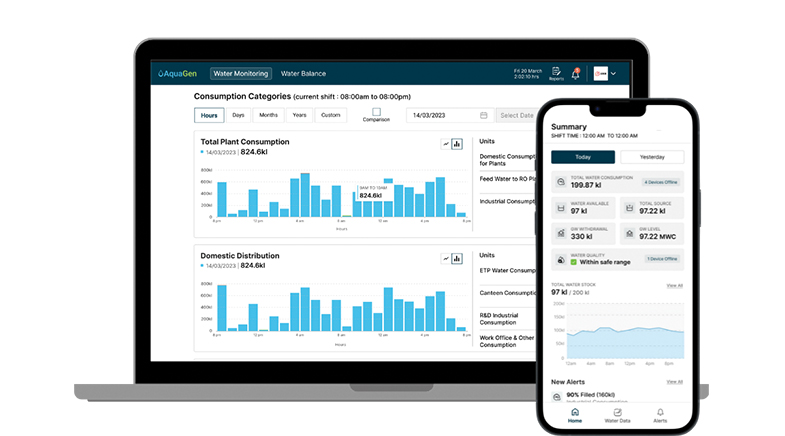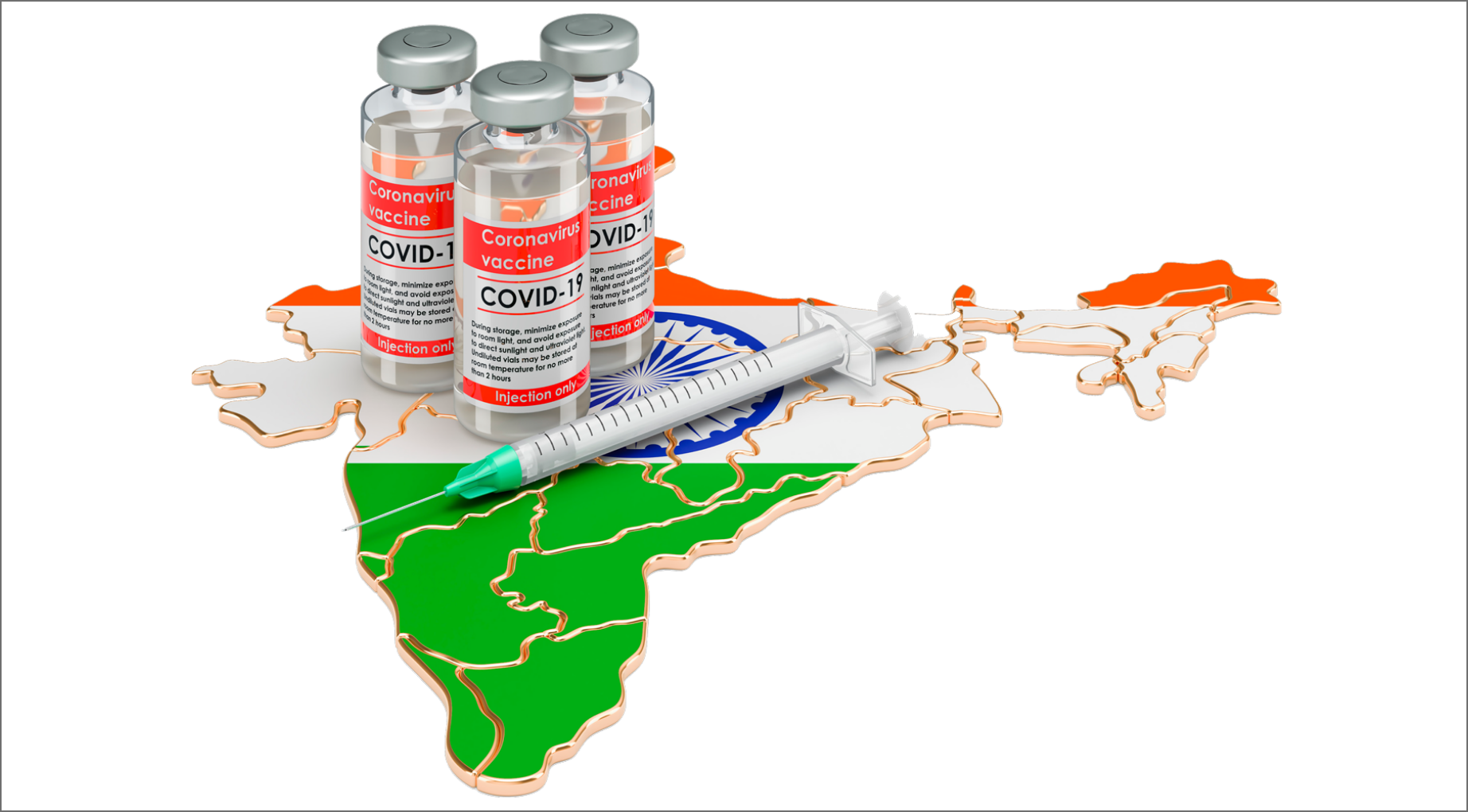The new science of longevity
-
- from Shaastra :: vol 04 issue 10 :: Nov 2025

Biology, data, and capital are converging to redefine ageing.
howindialives.com
howindialives.com is a database and search engine for public data
For most of modern history, medicine has treated individual diseases rather than their underlying cause. However, that's changing. Research increasingly views ageing itself as the root of most chronic conditions, from heart disease to dementia. Scientists are studying how to slow biological damage that accumulates over time, while investors back companies turning these discoveries into therapies. Biology, data, and capital are converging around one question: can we make longer lives healthier?
A LONGER LIFE
Global life expectancy has risen from 51 years in 1960 to over 73 years in 2023, adding roughly two to three years per decade through public health measures, vaccines, antibiotics, and better living standards. Yet, longevity remains uneven. The lifespan of people in Japan exceeds that of those in Nigeria by 30 years. People in high-income economies live, on average, 15 years longer than those in low-income countries. These gaps show that longevity is complex. Still, the broad rise across every region proves science can extend life. As research shifts to the biology of ageing, the next frontier is ensuring those extra years are healthy ones.
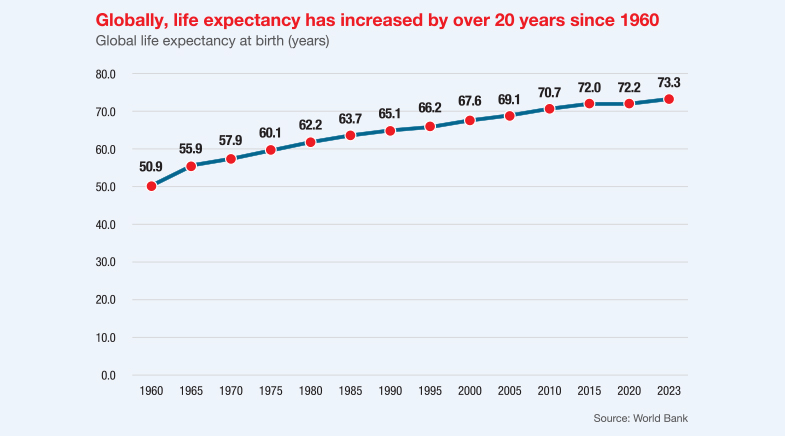
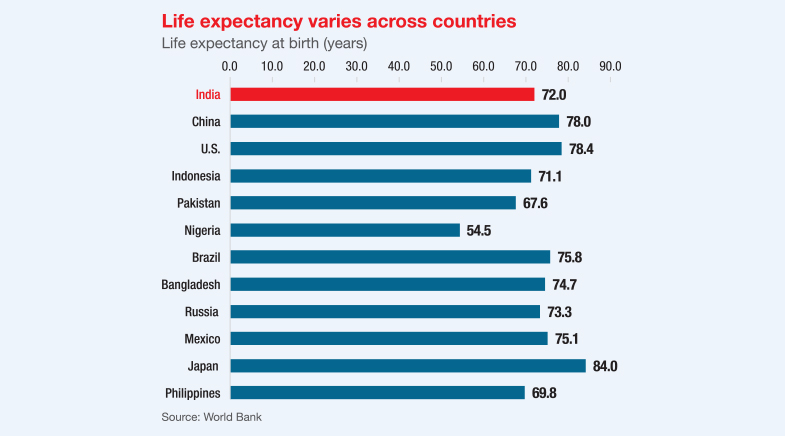
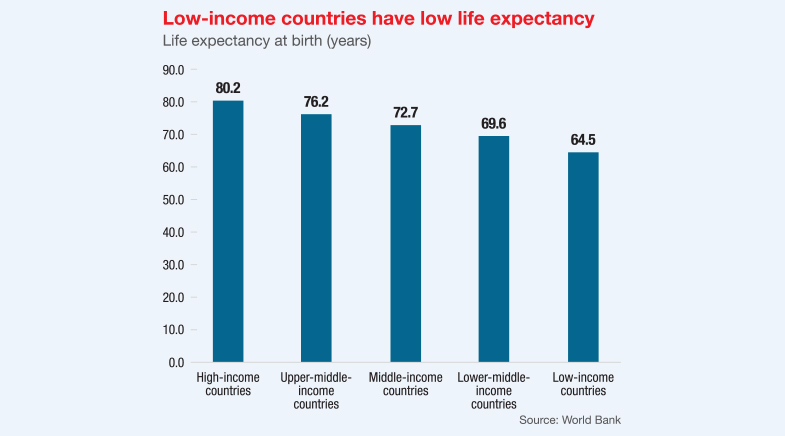
THE BIOLOGY OF AGEING
Researchers now describe the 'hallmarks of ageing' – cellular senescence, DNA damage, telomere shortening, mitochondrial decline, and disrupted energy regulation — as biological processes that can be modified or repaired. Research on ageing now spans a wide scientific landscape, exploring stem cell exhaustion, mitochondrial dysfunction, epigenetic change, cellular senescence, and nutrient-sensing pathways. The most active areas are regenerative medicine (over 24,000 publications), mitochondrial biology, and epigenetic regulation. The number of papers on "healthy ageing" rose from 25 in 2000 to over 900 in 2021, as advances in genetics and computing turned ageing into an active scientific investigation.
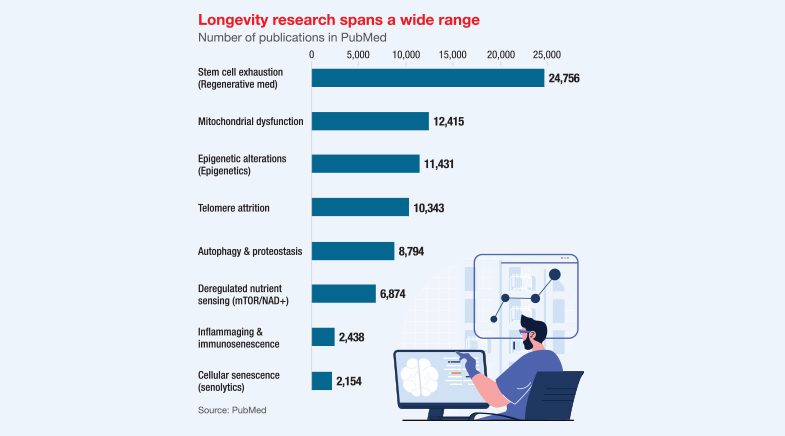
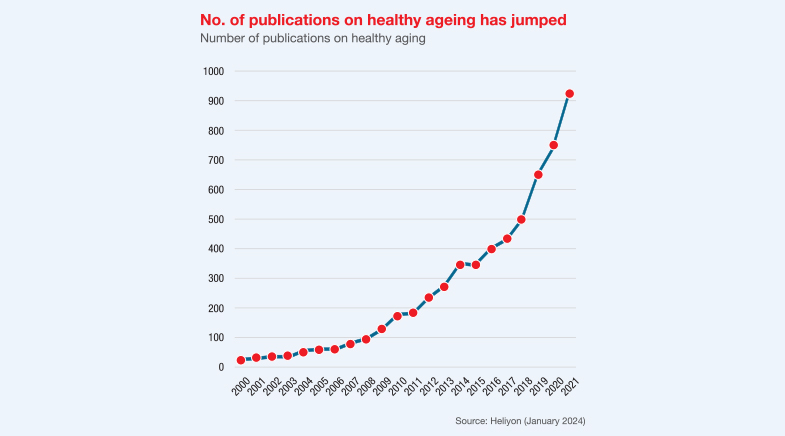
FROM THEORY TO THERAPY
Money has followed science. Funding for longevity biotech peaked at $10 billion in 2021 before settling at $8.5 billion in 2024. The number of deals increased five-fold over the past decade. Within the portfolio for 2024, discovery platforms and neuropharma each drew $2.6 billion, while cellular reprogramming and rejuvenation accounted for $3.6 billion. These mirror key strategies: clearing senescent cells, reprogramming cells, and enhancing tissue repair. High-profile ventures like Altos Labs and Calico Life Sciences combine gene editing, machine learning, and regenerative biology. AI platforms like DeepMind's AlphaFold are accelerating drug discovery and enabling precise interventions.
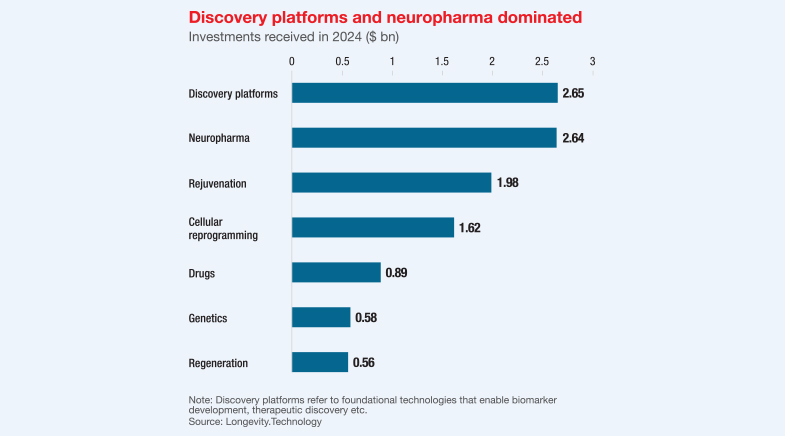
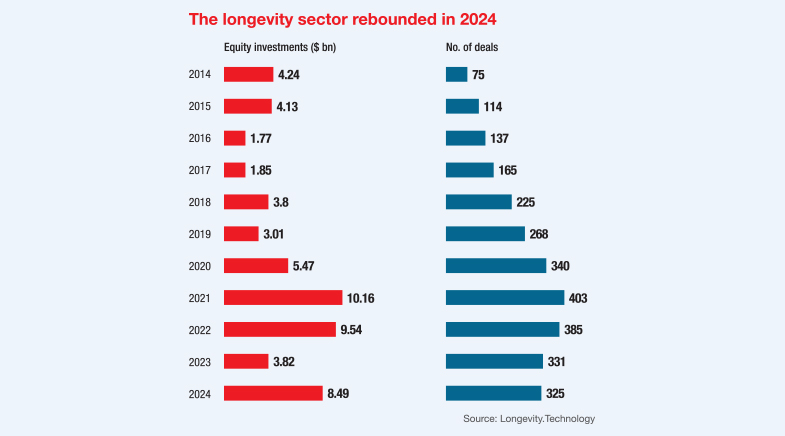
THE ECONOMIES OF HEALTHSPAN
As life expectancies increase, the causes of death have shifted from infectious to chronic diseases. The share of deaths by tuberculosis, diarrhoea, and HIV/AIDS has dropped. Now, heart disease, stroke, and chronic lung conditions dominate. Diseases linked to ageing, such as Alzheimer's, diabetes, and kidney disorders are rising steadily. The emerging challenge is delaying the onset of death by managing the cellular damage underlying most chronic conditions.
That transition is also reshaping the economics of healthcare. Economist Andrew Scott estimates that adding just one healthy year to global life expectancy could be worth $38 trillion, while adding ten years could yield $367 trillion in cumulative value. The broader human enhancement industry, covering regenerative medicine, neurotech, and digital health, is valued at $125 billion, growing more than 10% annually.

Yet, investment outpaces translation. Most longevity candidates in development remain in the laboratory or early clinical stages, and very few have reached the market with proven healthspan benefits. The current pipeline spans three routes, according to consulting firm McKinsey: repurposing existing drugs, combining known mechanisms, and developing entirely new ones. But progress is slowed by limited long-term human data and the absence of clear regulatory pathways.
Benefits will depend on policy. Regulators such as the U.S. Food and Drug Administration and the World Health Organization still do not classify ageing as a disease, which limits clinical trials and approvals. As a result, the first wave of therapies will likely reach only wealthy early adopters, creating what analysts call a potential "longevity divide". Over time, costs may fall, as seen with genomic sequencing and other technologies.
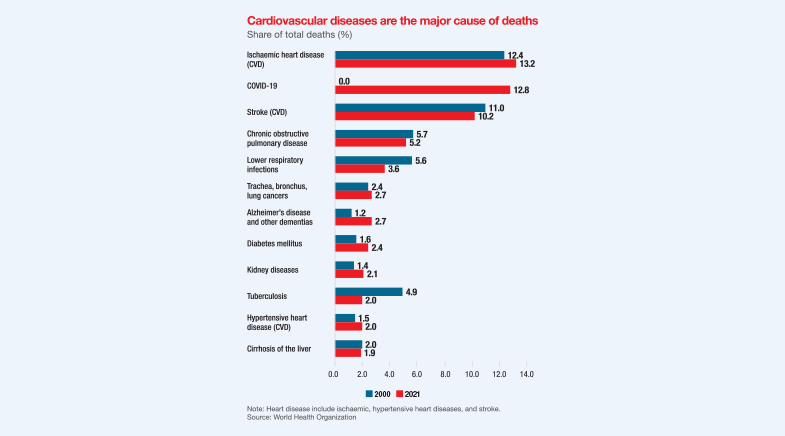
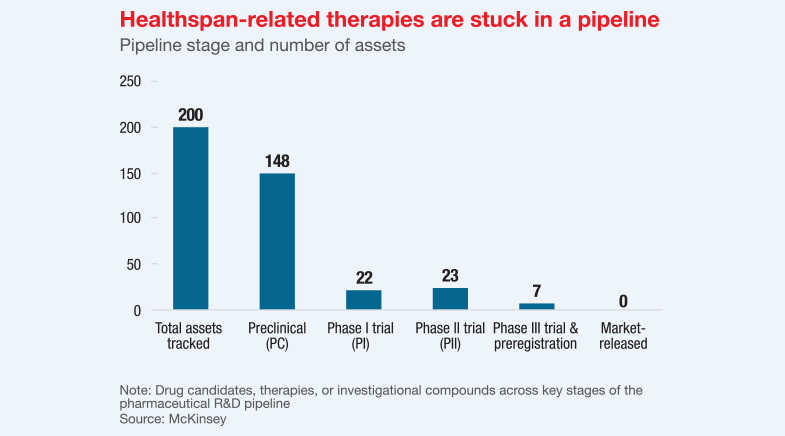
THE NEXT FRONTIER
Longevity science is moving from theory to practice, but it faces ethical, regulatory, and economic hurdles. If longevity science succeeds, it will reshape not only medicine but how societies think about work, retirement, and equity across generations. If proven safe and scalable, these innovations could redefine medicine's central goal: from curing disease to maintaining function. The answer to whether we can make longer lives healthier is no longer a matter of if, but of when, how, and for whom.

See also:
Have a
story idea?
Tell us.
Do you have a recent research paper or an idea for a science/technology-themed article that you'd like to tell us about?
GET IN TOUCH
